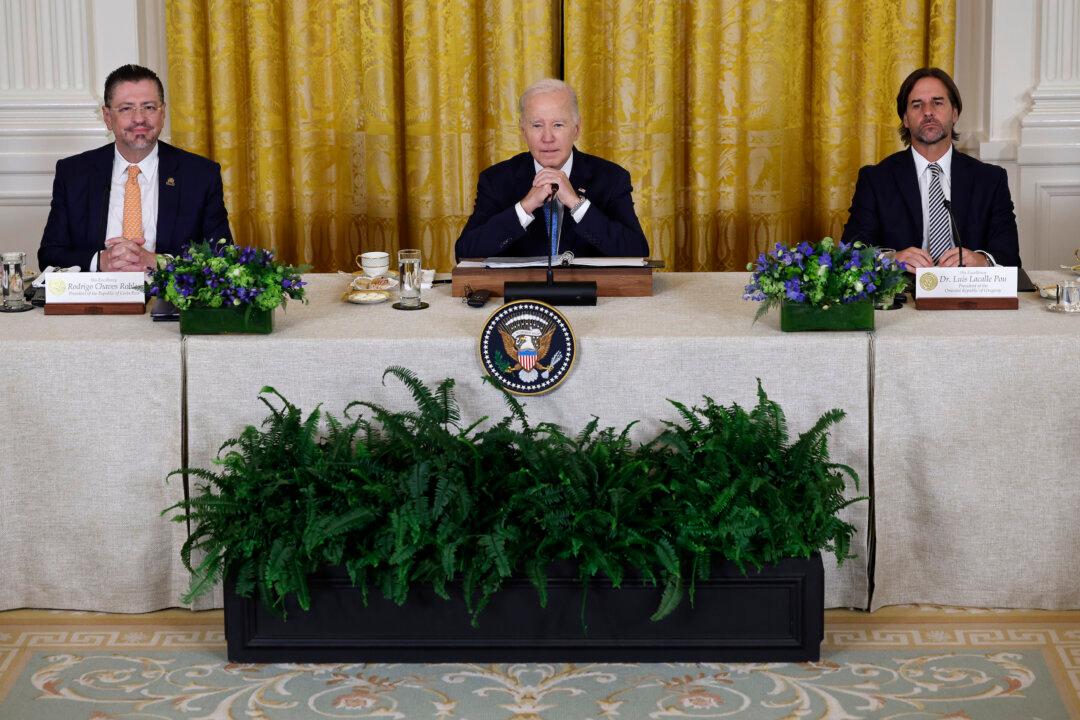President Joe Biden welcomed leaders from the Western Hemisphere to the White House on Friday for a summit to discuss regional issues including migration, supply chains, and infrastructure investment amid concerns over China’s increasing military and commercial footprint in the region.
According to the White House, nine of the summit’s 11 leaders are participating, including the prime minister of Canada and presidents from Barbados, Chile, Colombia, Costa Rica, the Dominican Republic, Ecuador, Peru, and Uruguay. Foreign ministers from Mexico and Panama are also attending.





